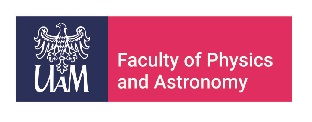10.10.2024
Study of quantum systems with classical and quantum machine learning
Dr. Antonio Mandarino, Department of Physics, University of Milan
Date, Time
10.10, 15:00 - 16:00
Machine learning either classical or quantum offers a promising advantage in studying
critical quantum systems. It allows us to study the dynamics of non-analytical solvable models
and to extract information about their phase diagrams. However, access to training labels is a major bottleneck for any supervised approach, preventing getting insights about new physics.
Recently, the Physics-Informed Neural Networks (PINNs) have been introduced as one of the most promising tools to solve systems of differential equations guided by some physically grounded constraints. By following an unsupervised learning approach, we apply the PINNs to the anharmonic oscillator in which an interaction term proportional to the fourth power of the position coordinate is present, namely a toy-model of a scalar-field theory in (0+1)-dimensions.
When it comes to quantum strategies, we test them on a class of fully connected models, and on the axial next-nearest-neighbor
Ising (ANNNI) model. This allows us to study the collective behavior within a system composed of many interacting
entities and determine the phases of finite-size critical spin systems.
The present talk is based on the results contained in the following papers: [Phys. Rev. E 107, 024113 (2023)], [Phys. Rev. B 107, L081105 (2023)], [arXiv:2405.13442], [Technologies, 12(10), (2024)].

